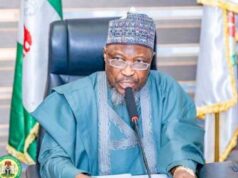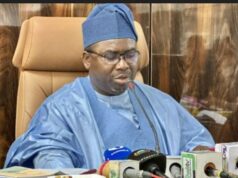
Vice President Yemi Osinbajo has articulated his personal commitment to the virtues of integrity, transparency and social justice which he said are also virtues exhorted in the different faiths and religions in the country.
“For me, spirituality connotes values. I came into government with values about what I think is important, especially around transparency, social justice and justice, among others. You are almost always a product of the values you believe in. Fortunately, a lot of these values cut across the different faiths; they are not necessarily restricted to a religion or one faith.
“In societies that are more developed institutionally, you don’t need to be told that you shouldn’t do certain things because you could end up in jail if you do and there is a good likelihood that you could be detected and the process will go through and you will be punished.
“I speak about corruption and all that. But where the institutions are weak, some people have reasons for not doing the right thing.”
Professor Osinbajo, who addressed a group of Harvard Business School students who visited him on Friday, August 26, at the Presidential Villa, Abuja, said that international community can only appreciate the enormity and complexity of some of Nigeria’s challenges if they first understanding the size of the country.
“First, there is a need to appreciate the size of the country, which is crucial to understanding what the issues are.
“For instance, Borno State is about the size of the whole of the United Kingdom plus Sweden or Denmark. So, when it is reported that there is violence in Nigeria, it is probably an incident in one remote area of the country, and many people in Abuja and Lagos may hear about it on social media; such is the size of this country.
“When they talk about economy, we are often compared with smaller African countries, but there are 10 states in Nigeria that have bigger GDPs than those countries, it is a huge target market.”
On some inaccurate characterization of Nigeria in sections of the international community, the Vice President said: “it is important to constantly engage the international community to show them how we feel about the stereotypes. It comes down to the work we do as government and people about the characterization.
“This is why some of the work around the Ease of Doing Business etc. are all initiatives that have behind them, the whole idea that this environment is one that is welcoming to business and people can come and do business.”
The students numbered about a dozen and are currently on an African excursion. They asked questions about leadership, faith, spirituality, government policies in education, health, economy, and national image, among others.






